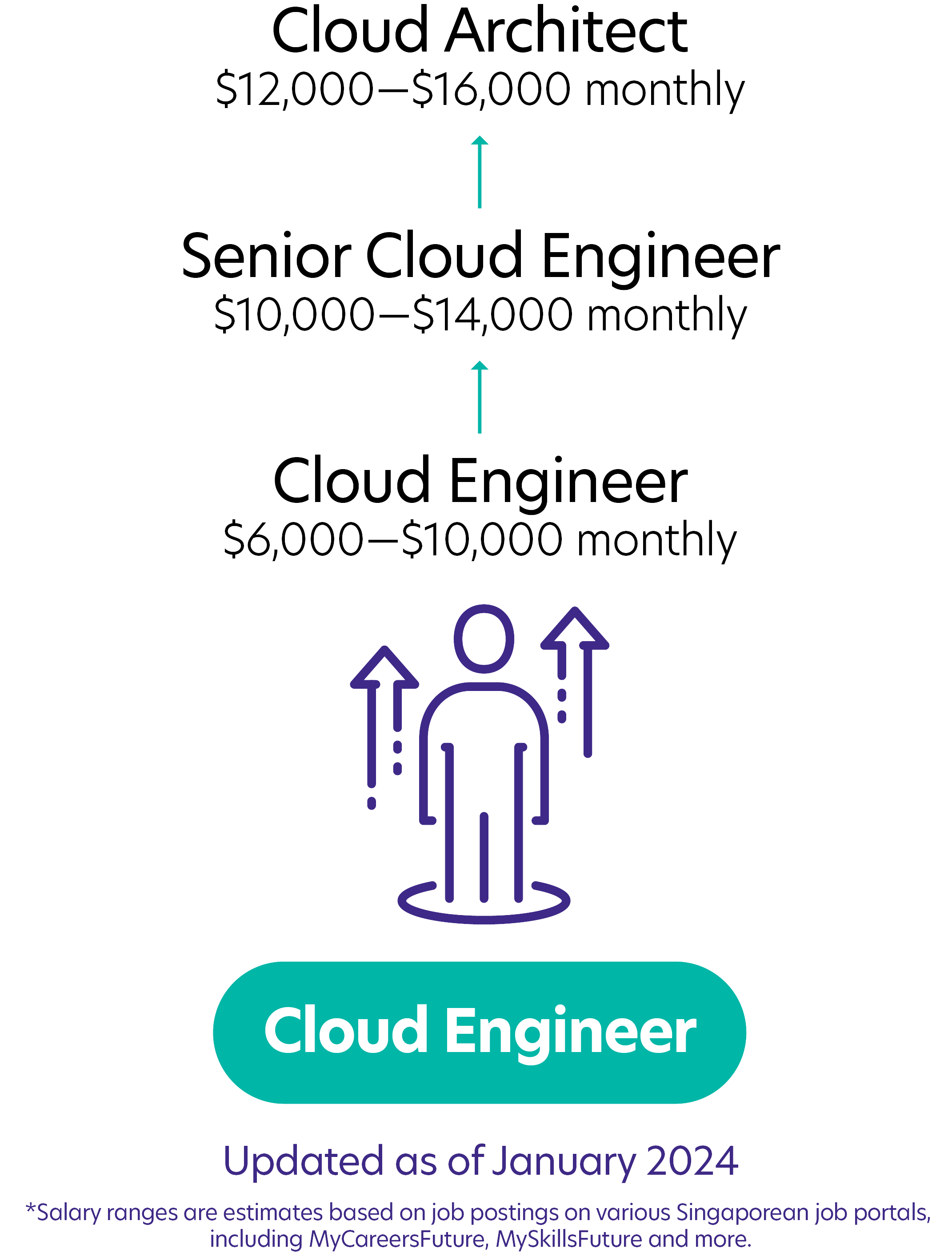
Cloud Engineers are IT professionals who evaluate organisations' technology infrastructure. They migrate data to cloud-based infrastructures and focus on the operations and infrastructure of the cloud.
Cloud Engineer Job Description
- Migrate existing infrastructure to cloud-based systems.
- Maintain the new cloud system.
- Ensure system security.
- Negotiate with vendors.
- Coordinate with other IT staff.
Note
Cloud Engineers are offered some of the highest salaries in the technology industry! This is because of the global migration to the cloud, necessitating their expertise in maintaining and managing cloud systems.
What you should know about Cloud Engineer jobs in Singapore
Nature of Work
With its inherent complexity, Cloud Systems can be demanding. However, its scalability and flexibility reaps rewards.Key Advice
Having a positive attitude and the willingness to gain as much experience as possible, cloud engineering can be an exciting and fulfilling field for you!-
Entry RequirementsEntry Requirements
- Minimally, you would require a bachelor's degree in Computer Science, Software Engineering, Information Systems and Technology, or any other related field. However, pursuing a master's degree is recommended as it is now a highly competitive job role.
- You can also learn programming languages to further develop your programming skills, and gain hands-on experience in cloud computing through internships and projects!
-
Possible PathwayPossible Pathway

Skills you may need
Understanding of Cloud Service Providers
Knowledge of Cloud Service Providers like AWS, Azure, and Google Cloud is essential.Knowledge of Cloud Storage and Security
Use various storage solutions and implement robust security protocols to protect data.Knowledge of Linux
Expertise in Linux is vital, as it's commonly used in cloud environments.Understanding of Web Services and API
Integrate and manage cloud-based applications and services efficiently.Problem-Solving
Identify and resolve complex technical issues and challenges within cloud infrastructure.Decision-Making
Make critical decisions about cloud architecture, resource allocation, and technology selection.Negotiation Skills
Manage contracts, costs, and service agreements with cloud providers and vendors.Strategic Thinking
Plan cloud deployments, aligning them with long-term business goals and scalability requirements.Explore Other Programmes
Browse AllYou have bookmarked your first item!
Find it in My Discoveries with insights on your interests!



